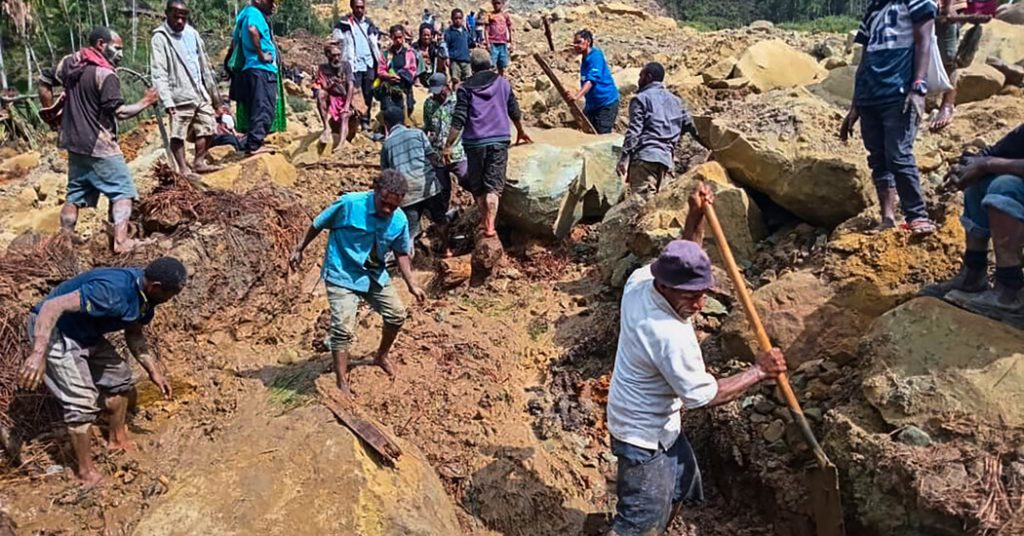At least 670 people are presumed to have died in a landslide in Papua New Guinea, with search-and-rescue efforts hindered by difficult access to the disaster site and ongoing hazards. The shifting ground poses a danger to survivors, prompting many to abandon their homes. The region in Enga Province is densely populated with a young population, heightening fears of many child fatalities. The local government has provided food and water to around 600 people, with a humanitarian convoy delivering supplies to the region on Sunday.
The difficult conditions, including ongoing landslides and falling rocks, have made distribution challenging, with no earth-moving equipment available for search and rescue efforts. Only basic tools like spades and pitchforks are being used to find bodies. Tribal clashes in the area have added to safety concerns, with a quarrel between two clans resulting in eight deaths and the destruction of dozens of houses. The landslide struck the village in the early hours of Friday, burying homes with boulders larger than shipping containers and cutting off a major highway.
The International Organization for Migration is assisting with relief efforts in Papua New Guinea, with the chief of mission noting that over 250 houses were abandoned and 1,250 people displaced. The humanitarian convoy faced challenges in accessing the region due to ongoing hazards and the remote location of Enga Province. An aid convoy was able to deliver tarps and water on Saturday, but no food was distributed. As of Sunday, the ground was still shifting, making rescue operations dangerous and difficult.
The local government is working to provide assistance to those affected by the landslide, but the treacherous conditions in the region are hampering relief efforts. With no heavy machinery available, people are forced to rely on basic tools to search for victims. The fear of more landslides and ongoing tribal clashes have further complicated the situation, with safety concerns for those involved in the relief efforts.
The landslide in Papua New Guinea has had devastating consequences, with hundreds of lives lost and many more displaced. The region’s dense population and young demographics have added to the challenges faced by search-and-rescue teams in accessing the disaster site. The remote location and ongoing hazards in Enga Province have made it difficult to provide immediate aid to survivors, with resources limited and access restricted.
The United Nations official reported the estimated death toll as search efforts continue in the region affected by the landslide. The humanitarian crisis in Papua New Guinea is further exacerbated by ongoing tribal clashes and safety concerns for both residents and relief workers. The disaster has highlighted the need for increased support and resources for those affected by the landslide, as well as a long-term strategy for disaster preparedness in the region.


